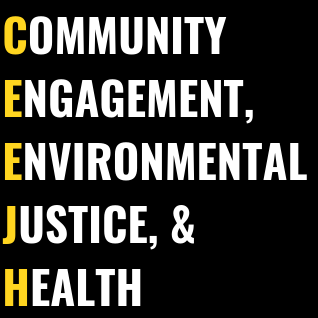Food Justice and Sovereignty
The local food environment serves as a critical driver of individual and neighborhood health. Access to high quality food differs along economic and racial lines, with supermarkets or large food chain stores concentrated in Whiter, wealthier neighborhoods, contributing to severe health disparities amongst low wealth communities and communities of color. CEEJH works across the urban-rural gradient to work towards food justice and sovereignty alongside community organizations throughout the region. In Baltimore, CEEJH has conducted analyses to determine if urban agriculture enterprises are at risk for contamination due to their proximity to legacy pollution sites, including those that are known heavy metal polluters. In Prince George’s County, CEEJH has conducted analyses regarding the quantities and quality of available food options available by race, ethnicity, poverty, and educational attainment using the Johns Hopkins Center for a Livable Future healthy food availability index (HFAI). Dr. Wilson and CEEJH have conducted a number of analyses regarding the environmental justice implications of hog CAFOs in North Carolina and Mississippi, and have concluded that they pose a threat to low wealth, Black communities in these areas. CEEJH’s current work on the Delmarva Peninsula has included similar analyses regarding industrial chicken farming. Dr. Wilson has also collaborated with Food and Water Watch, SRAP, and Johns Hopkins Center for a Livable Future (CLF) to raise issues about the negative impacts of industrial chicken farming on the Eastern Shore including Salisbury, in Wicomico County, and in Somerset County, MD. Click here to view Dr. Wilson’s plenary speech at the 2017 Factory Farm Summit.





